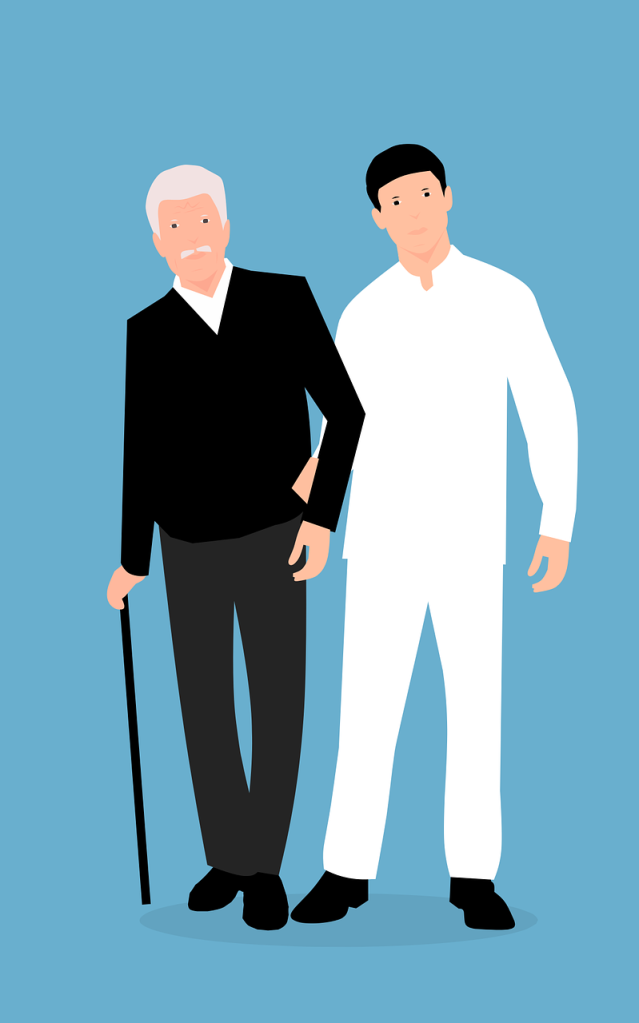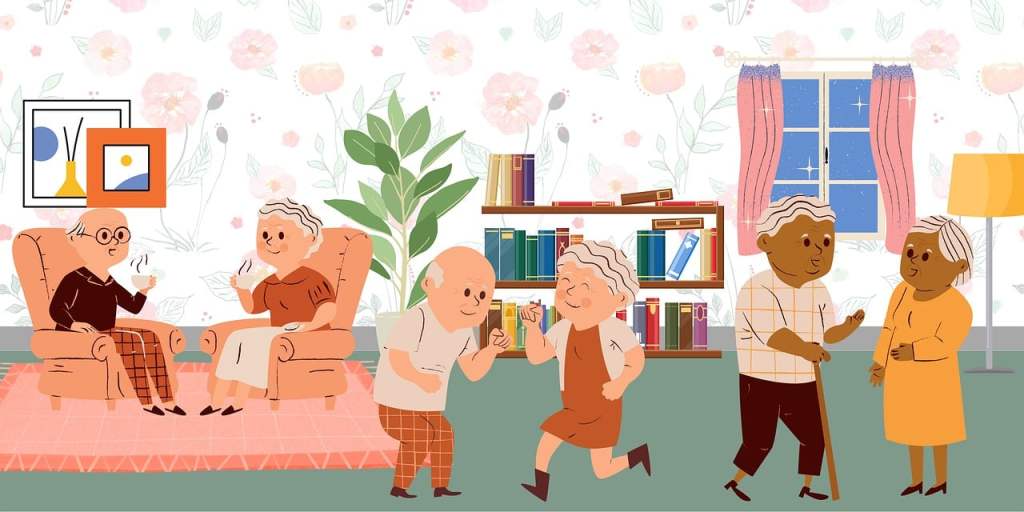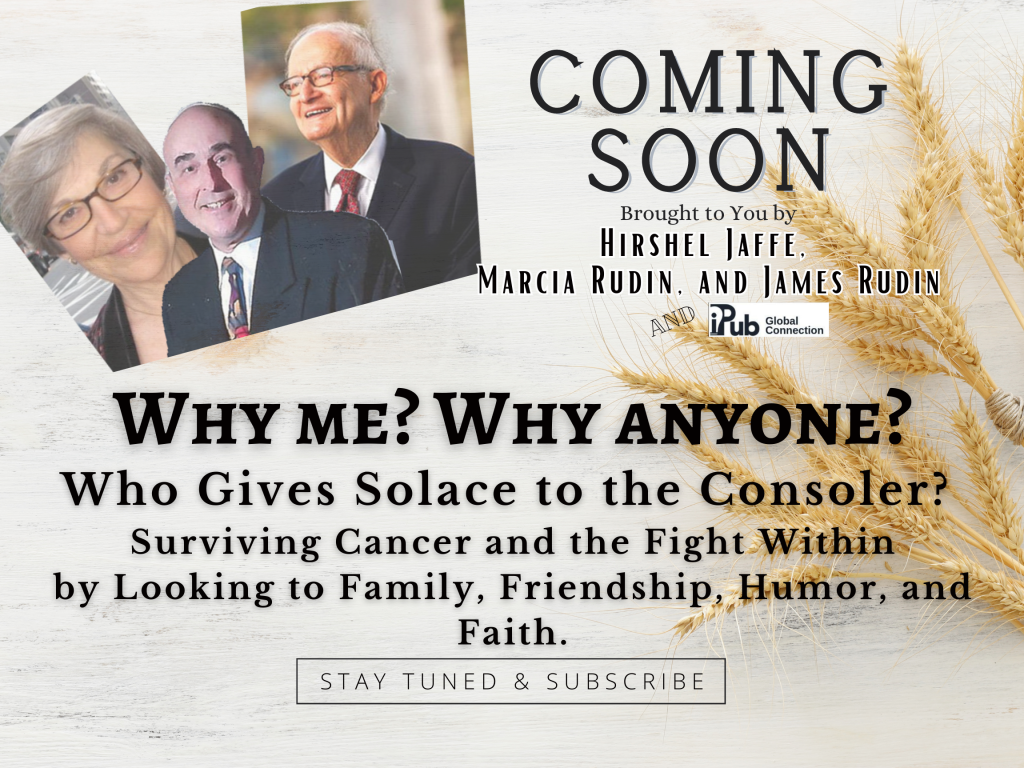An iPub Perspective Editorial
By Marcia R. Rudin
This question was asked of me when my husband and I relocated to Florida and into a senior care facility. Though my friend meant well, I unpack why they may have asked me that question. Senior care facilities have become better equipped to serve their residents medically and compassionately in the past several decades.
“Can you leave?” my friend in Manhattan asked me when I told her my husband and I were planning to move into a senior citizen continuing care community in Florida.
“But you’re going into an institution!” another Manhattan friend exclaimed.
“Yes, of course we can leave,” I assured my first friend. “We’ll be in Independent Living. They don’t lock us in.” And I told my other friend, “Don’t think ‘institution’ — think ‘luxury hotel’ or ‘cruise ship.’”
My two friends had my best interests at heart. They were picturing us moving into a terrible nursing home where drooling, drugged-up zombies sit in wheelchairs in dark lounges and stare vacantly at a blaring TV set, or are lined up in the hallways or tied to their beds. Both friends were stuck in the old view of senior living facilities, where children “PUT AWAY” their parents, often against their will, so they didn’t have to bother – or perhaps weren’t capable of — caring for them in their final years.
Truth be told, in the 1980s, my mother-in-law was tied to her bed in her assisted living facility because she wandered into other rooms and harassed other residents. This was a terrible response to her advanced dementia, but they apparently deemed it necessary in order to protect the other residents. That would never happen where we live now.
The emergence of senior care facilities focused on providing the best possible psychological and physical care for older individuals, tailored to their wants and needs, is a relatively recent development. In his remarkable book “Being Mortal,” Dr. Atul Gawande highlights that it was not until 1983 that Karen Brown Wilson introduced the concept of assisted living facilities. These facilities aimed to offer an alternative to nursing homes, emphasizing the preservation of autonomy and the pursuit of a fulfilling life for the elderly. Wilson pioneered the first facilities based on this vision, comprising 184 residences across eighteen states.

While assisted living facilities experienced rapid growth and became the preferred choice for many seniors by 1990, they gradually transformed into transitional options leading to nursing homes, rather than remaining as desirable alternatives. Nonetheless, Wilson’s notion of enlightened care for the elderly gained traction and influence over time.
In 1997, my sister and I convinced our mother to enter a senior care facility. After experiencing three automobile accidents within a year, it was evident that she should no longer be driving, especially considering her suburban Philadelphia residence. However, she was unhappy with the facility, saying there were too many “old people.” Despite the facility’s adherence to Wilson’s vision, my mother despised her stay there due to her disappointment with the quality of bridge players, which was her sole passion in life. Additionally, she complained about the supposedly terrible food, although I personally found it to be delicious, even causing me to gain weight during my visits.
My husband and I are fortunate to be able to afford to live in our assisted living facility. The staff respond to our every need immediately. The food is abundant and delicious. They offer many parties, lectures, and other activities, and medical care and assistance with advancement to the next level of care when needed. During Hurricane Ian, the staff took care of us. They fed us, made sure we had water to drink and water for flushing our toilets before electricity and water were restored. The management dealt with the insurance company and FEMA and handled the repairs for the extensive damage done to our buildings.
Best of all is the constant presence of people. Residents are never alone outside of their apartments. People love to chat in the hallways. Friends to eat with each other and socialize with throughout the day into evening. There’s always someone to assist you when you need help, drive you somewhere if necessary, comfort you and help you cope with your own illness or the illnesses and deaths of loved ones.

Admittedly, at times, it can be a bit depressing. Walkers and motorized scooters are everywhere, and it seems that many residents should have transitioned to the next level of care but have chosen to maintain as much independence as possible. Echoing my mother’s complaint, there are too many old people. Really grumpy old people.
But wait! I’m an “old person” too! I’m 82, my husband 88. And we’re as grumpy as everyone else.
In our mailroom, there’s a shelf where, once you “transition to the next level of existence,” they place a photo of you alongside a small vase and a rose. This serves as a way to inform others within our community about the passing of a resident. Therefore, the ongoing advice here is to simply, “Stay off the shelf.”
Yes, we joke a lot here. If you are lucky enough to get as old as we are—and with all of the problems that come with old age, it’s still “better than the alternative.” You have to have a very good sense of humor to cope with the indignities of old age, the aches and pains, the rush to the bathroom, the constant doctor visits, sleepless nights, dietary restrictions, the illnesses, the constant worry about yourself, your friends, and your family. And, the deterioration and death of good friends.
Finding humor in our lives—granted, a rather jaded and twisted kind of humor—is difficult. Coping with aging is difficult. Admitting that you are not just “getting” old but actually are old, is difficult. Making the decision to move into a continuing care community, as luxurious and wonderful as ours is, is difficult. We have friends who long ago should have made the move and others, such as my two friends in New York City, who are appalled that we did.
One of the keys to successful aging, in my opinion, is to realistically acknowledge your current stage in life and what likely lies ahead. Observing others here with their hunched postures, reliance on hearing and walking aids, and sometimes fragmented communication, it becomes necessary to psychologically embrace the fact that you are at the same stage, even if you are lucky enough to be in better shape than many others.
It’s important to recognize some of the advantages to being old. People are polite and help you wherever you go. When you board an airplane, people help you hoist your hand luggage into the storage compartment and help you retrieve it. They assist you in supermarkets. Even the civil servants at the DMV where I renewed my driver’s license were kind. Most everyone, at least in Florida, is polite to you, albeit sometimes a bit condescending.
Take my advice, ladies: let your hair go gray. You will reap the benefits.
The views expressed in this commentary do not necessarily reflect those of iPub Global Connection.

Featured photo credits: Image by ❄️♡💛♡❄️ Julita ❄️♡💛♡❄️ from Pixabay.



Hi Marcia, or as I used to call you, Mrs. Rudin! I love this post. Just randomly came across it via facebook. Cheers to you and Jim for facing life with generosity and courage. May all good things come to you in your new home. All my best, Alisa Malinovich
LikeLike